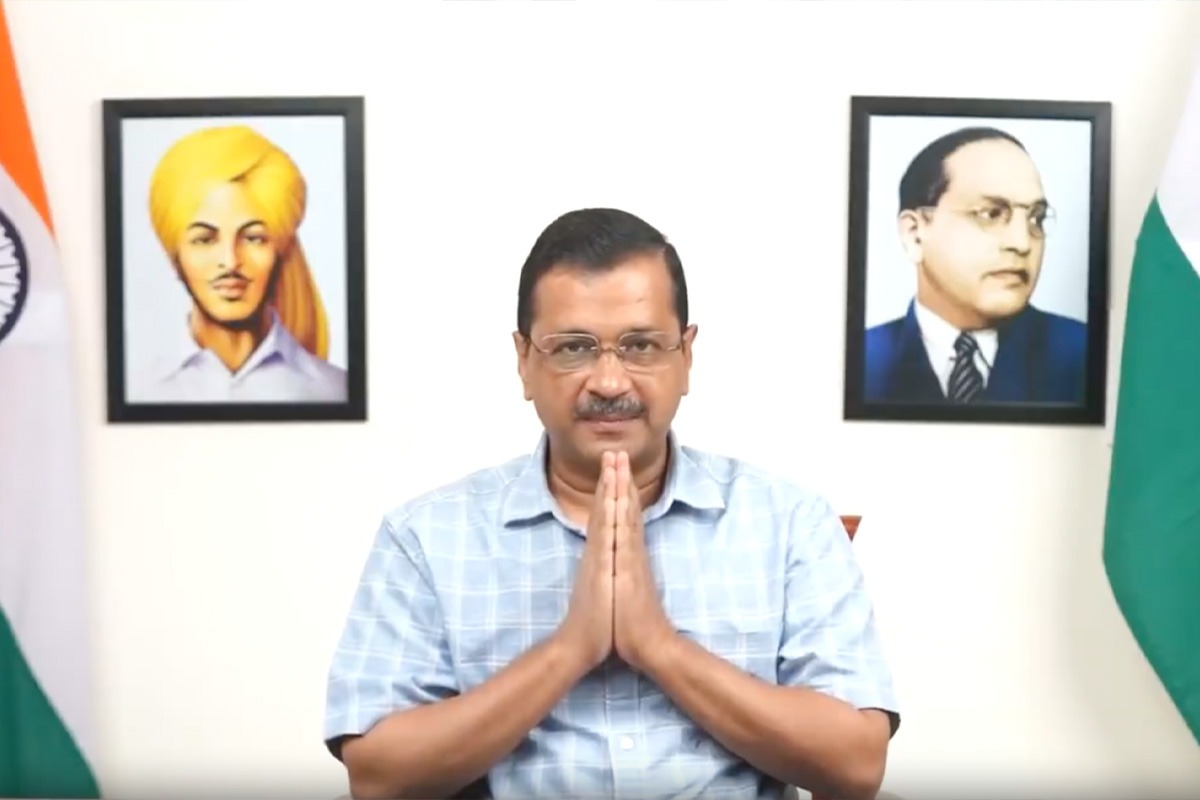NEW DELHI: Delhi chief minister Arvind Kejriwal launched a scathing attack on Prime Minister Narendra Modi and home minister Amit Shah for pushing the controversial Delhi service bill through parliament, labelled Monday as the ‘black day in Indian democracy’.
Kerjwal’s Aam Aadmi Party (AAP) was hoping to stall the Government of National Capital Territory of Delhi (Amendment) Bill in the Rajya Sabha with the help of INDIA alliance partners. However, it sailed through with 131 in favour and 102 voting against it.
The bill, which replaces an ordinance, gives superior powers to the Central government over the transfer and posting of bureaucrats.
While asserting that the bill subjugates the people of Delhi, the chief minister equated it with the Government of India Act of 1935, which the British imposed on Indians.
ALSO READ: DELHI BILL| Why fuss over mantris less powerful than babus?Needed to stop scam files theft: Shah
“After 75 years of Independence, the prime minister has curtailed the freedom of the people of Delhi, almost as if their votes don’t matter, because their elected government has been rendered almost powerless,” he remarked.
The AAP supermo accused PM Modi of deliberately disregarding the Supreme Court’s ruling, which underscored that India is a democratic nation and voters elect a government to exercise discretionary powers on their behalf. He also accused him of flouting this fundamental democratic principle and violating the court’s directive by passing the bill.
Kejriwal further commented, “The future of our beloved country seems like it is in the wrong hands. It’s tough for the BJP to beat AAP in Delhi. For the last 25 years, BJP has not been in power in Delhi, so they want to hijack the people’s mandate by any means. BJP cannot compete with AAP’s governance, and their failures in states like Gujarat, Haryana, and Manipur have driven this desire to obstruct Arvind Kejriwal at any cost.”
He elaborated, “BJP takes issue with social welfare schemes such as new schools, free medical supplies, Mohalla Clinics, new hospitals, 24/7 electricity, water supplies, and roads,” while reminding the Prime Minister of his 2014 election promise to grant Delhi complete statehood.
He expressed gratitude to opposition parties and their leaders for supporting Delhi in this struggle.
Following the passage of the Delhi Ordinance Bill in the Rajya Sabha, Arvind Kejriwal, Delhi CM and National Convenor of the Aam Aadmi Party, criticized the Central Government and Prime Minister, saying, “This day has been a black day in the history of Indian democracy; this Bill makes the people of Delhi helpless, obligated, and dependent.”
He added, “After 75 years of independence, PM Modi has stripped the people of Delhi of their freedom, enacting provisions akin to the 1935 Act by the British, where elections took place but the elected government had no powers to function.”
ALSO READ: Scrutiny for Delhi Services Bill? I’ll respond to Privileges Committee: Raghav Chadha
Kejriwal underscored that the law effectively places Delhi under the direct rule of the LG and Prime Minister, highlighting that it contradicts the orders of the Supreme Court. He queried the implications for a country whose Prime Minister disregards the Supreme Court.
“The Central Government’s arrogance is such that they feel no need to adhere to the Supreme Court’s orders. Knowing it’s impossible to beat the Aam Aadmi Party, they aim to seize power by any means,” he added.
Kejriwal emphasized that the people of Delhi have made it clear that they don’t want BJP governance, with recent elections underscoring this sentiment. Despite this, the CM lamented, the PM continues to disregard both the people’s voice and the Supreme Court’s directives.
In a pointed critique, Kejriwal remarked, “And you know what’s written in this law? The law that has been passed today states that all employees of the Delhi government, from Category A to Category D, whatever work they do – all policies about these employees. The central government will formulate their transfer policy, who will be an officer, who will be a peon, what work they will do? The Prime Minister of the country will sit and decide what work a peon of the Delhi government will do? Is this the job of the Prime Minister?.”

